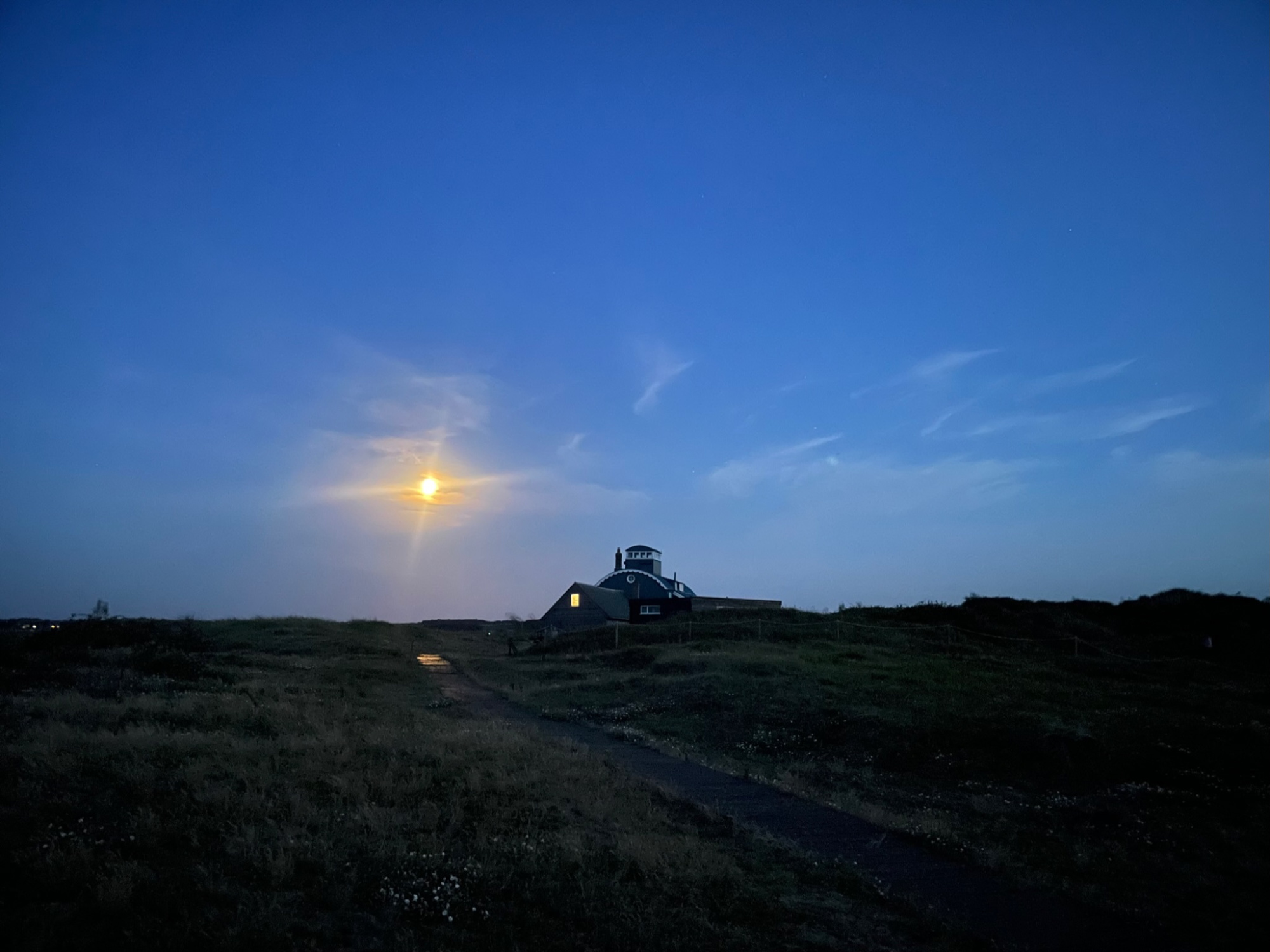collaboration News
Interdisciplinary trip to Blakeney Point with UCL Genetics, Evolution & Environment and the Slade School of Fine Art

Slade Scientist in Residence 2023-24, Duncan Greig, led an avant garde of ten artists and biologists to UCL’s field station in the remote Old Lifeboat House on Blakeney Point in Norfolk. The group spent two days exploring similarities between scientific and artistic practices, creating new connections and ideas for future collaborations, and making some novel artworks inspired by the place and the occasion. Outputs included paper and pigments made from algae, phytograms and 16mm film images, ceramics and assemblages of materials found on the beach, and, of course, paintings and sketches of the inspiring landscape. A common theme was the representation of genetics, evolution, and ecology in art, and the group enjoyed putting many of new ideas into practice. We hope to make this a regular annual event.
"I loved every second of this trip, but what I was most excited about was a simple method we developed that to make artwork by an evolutionary process inspired by both biological inheritance and traditional drawing exercises. It’s absolutely thrilling to be able to make connections like this across such diverse disciplines." —Duncan Greig
"I visit Blakeney often, including an annual field class for biology students. Spending a few days there with a bunch of talented and insightful artists has given me a whole new perspective on the place. At times it was challenging—particularly taking part in speed-drawing exercises—but I’ve been awakened to subtle but important details in the landscape and ecology that I’ve never noticed before. Since leaving Blakeney, I’ve been working with one of the artists to research the use of algae in paper making. I’m concerned about the increased frequency of algal blooms at Blakeney and the potential ecological impact of these. Our research suggests that there is a long lost history of paper making using some freshwater algal species, and understanding the biology of the algae is important for the process. I’m looking forward to more paper making experiments, and hopefully some new ways of visualising how algal populations are changing over time." —Izzy Bishop
"I really enjoyed the experience and the friendly and collaborative atmosphere has given me so much food for thought. It was great to see how people explored their artistic and scientific interests in the unique landscape of Blakeney Point. I learnt from other people’s practices, such as experimental approaches to making art materials from elements found in the landscape and how vintage photographic processes can offer an alternative perspective of the contemporary environment. The trans-disciplinary dialogues were really helpful, and I had some interesting and exciting conversations about making collaborative artworks about ecological and evolutionary change." —Mary Yacoob
"Despite my childhood holidays being spent with my family in Blakeney, this trip to the Far Point opened up a whole new perspective. In particular learning about; the geological terrain, migratory species and the ever-changing landscape of North Norfolk. I am interested to explore artistic devices found in the emotive handling of colour and nature, so the conversations and collaborative group exercises between the ecologists, scientists, artists and pigment specialist was extremely insightful. I look forward to evolving this poetic, outdoor period back in the studio and will use my sketchbook ‘colour beginnings’ to expand my ideas, inspired by this wild and moving environment." —Jessie Stevenson
"Bringing a small box of art materials to Blakeney Point I had no preconceived notion or plan of how it would be or what I would make. I found that spending time in such a strange and intriguing landscape with a great group of people to be a real privilege. Many interesting things were discussed and formed in dunes, waves, mud and at dinner table. I am particularly excited to be coming away with ideas for a collaborative project exploring algae as a paper-making material." —Rob Rivers